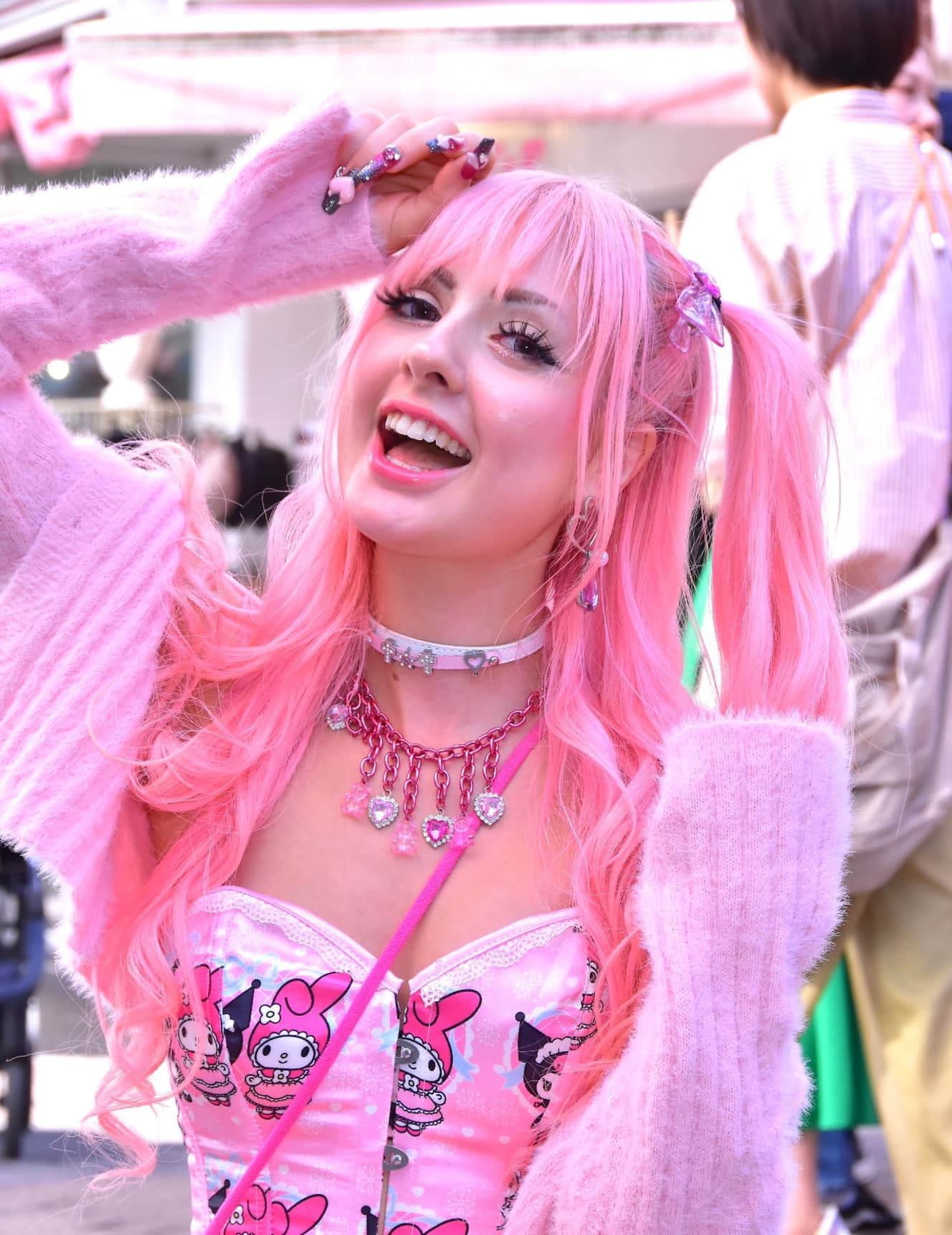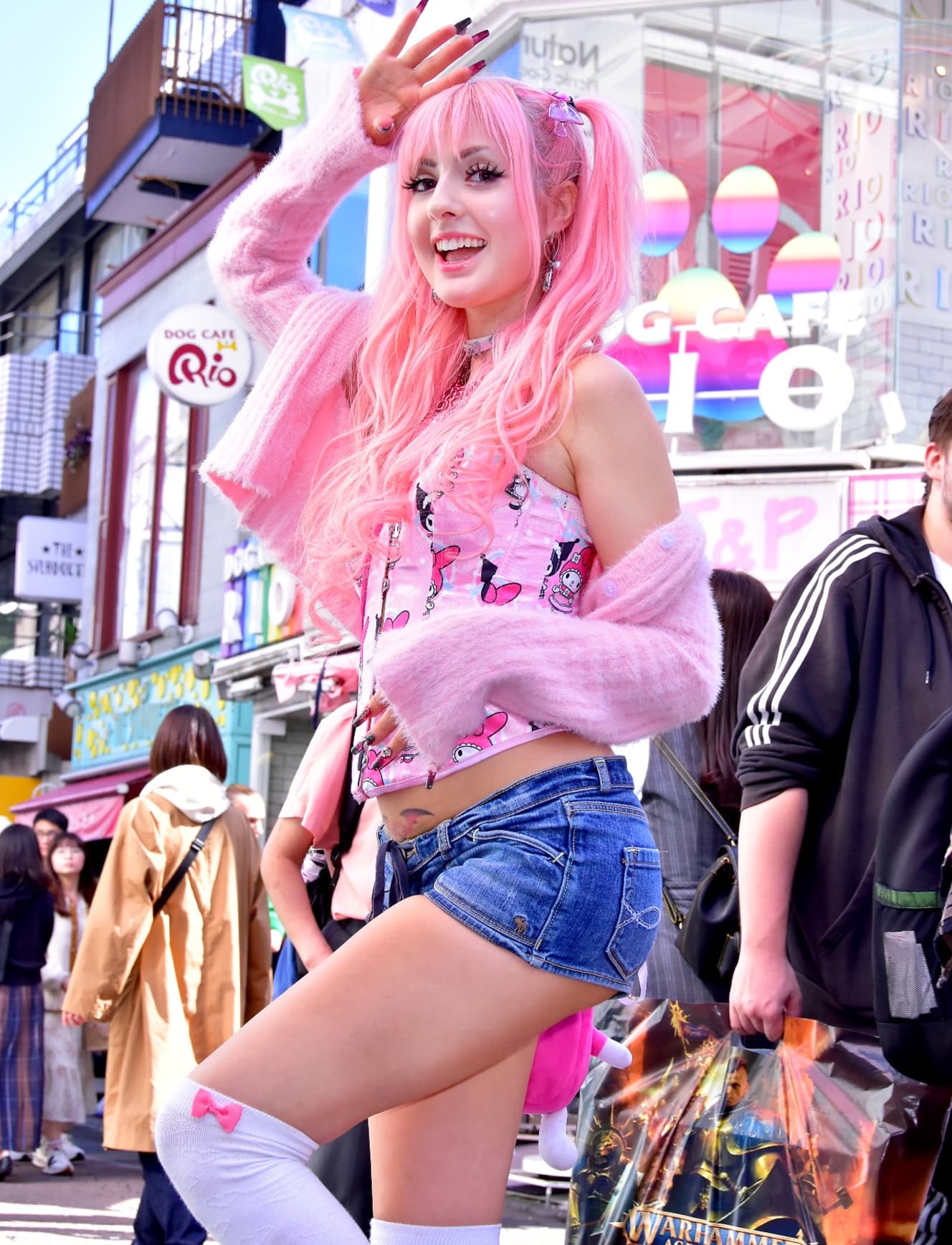A fan of “PUFFY” at the age of 10…American Natalya Nacchan’s special circumstances of “Gal’s Popularization Activity
I want to make gal culture popular again.
Says Natalia Nacchan, aka PiNKII, a popular gyaru rapper who loves pink and wears thick-soled shoes. She is from Missouri, USA, and her specialty is para para. She calls herself “Uchi,” and sings and dances in gal makeup.
When I was 10 years old, I did a homework assignment on foreign cultures and became a fan of PUFFY. I got hooked on Harajuku fashion, and while looking at Japanese magazines, I got hooked on gyaru (gal). I bought and read “Ranking Daisuki” and “Koakuma ageha” on eBay.
When I was 12 years old, I painted my face black and put on the white eye makeup of a yamamba gal, and my mom grounded me from going out. …… I was so disgusted because I didn’t understand what it meant, but from then on I just enjoyed taking pictures in my room with my friends.
In a small town in Missouri, she lived with her father, an architect, her mother, a housewife, and her two younger brothers. He grew up in a solemn home where the family went to worship services on Sundays.
When I was 17, I asked my mother if I could bleach my hair to make it pink. So I secretly dyed my hair pink when I came to Japan.
Around my parents’ house, all the people were wearing jeans or sweatpants. I hardly saw any Japanese, and no one was dressed fancy. When I walked around town in thick-soled shoes and a mini-skirt, I was a total floater.
During her first visit to Japan, Nacchan toured Tokyo, Nagano, Fukushima, and other cities for a school event. Nacchan wanted to visit Shibuya and Harajuku, but she stayed only a few hours.
We could barely make it to Japan, but we only spent an hour in Harajuku,” Nacchan said. After that, we were taken to Mt. Fuji, which I didn’t want to go to, and I decided that one day I would live in Japan.
While in the U.S., I studied gal fashion in my own way. While in the U.S., she studied gal fashion in her own way, applied gal makeup to her friends, and even danced the “para para” dance with them and distributed it. When greeted in the morning by a friend with “hey,” she would reply, “Choris,” and it seems she was a hard-core gal.
When she turned 15, she was allowed to go out wearing yamamba makeup, provided that she did not paint her face excessively black. However, when he went to a shopping mall with his friends, he was stopped from entering by security guards. He said he was refused on the grounds that they could not see his true face and would not know who he was if they took things from him.
He said, “I float around and stand out, so if I were to shoplift something, they would know right away. I’m the type of person who gets fired up when someone objects, so I thought I had no choice but to go all the way as a gal. I was told no, so that made me want to do it even more.
She comes to Japan once a year. While living in the U.S., she searched for Japanese singers on YouTube and found Morning Musume, Chisato Moritaka, and Pink Label. She sang and danced, imitating Morning Musume, Chisato Moritaka, Pink Lady, and The Peanuts.
I learned about them on YouTube, so they are from different eras, but even though I am not Japanese, when I hear a song from the Showa period, for some reason I feel as if I am remembering the old days, and I feel like, ‘Oh, how nostalgic.'”
She came to Japan on a student visa in the spring of 2014. She studied at a hair and makeup school. She also got a part-time job at 109, which she had longed for.
I said the same thing over and over again, and was paid about 800 yen an hour. After that, I worked part-time at a café in Shibuya Center Street, where gal (young women) gather. In my second year in Japan, I was able to eat without a part-time job through activities such as fan clubs.
There is no need to compare yourself with others. If you don’t compare yourself with others, you don’t suffer. There is no need to rely on men. Nacchan is true to herself.
As a woman, the years around my age are the most enjoyable, but if I focus on men, I will not be able to do the things I want to do. If that is the case, I think it would be better to be alone.
I want to do music for girls who are working hard and want to be strong. I want to perform all over the world. I want to visit different countries. I like adventure.”
The gyaru culture has gone completely under the radar, but with Nacchan’s efforts, it may one day become popular again.


Interview and writing: Daisuke Iwasaki PHOTO: Takeshi Kinugawa
